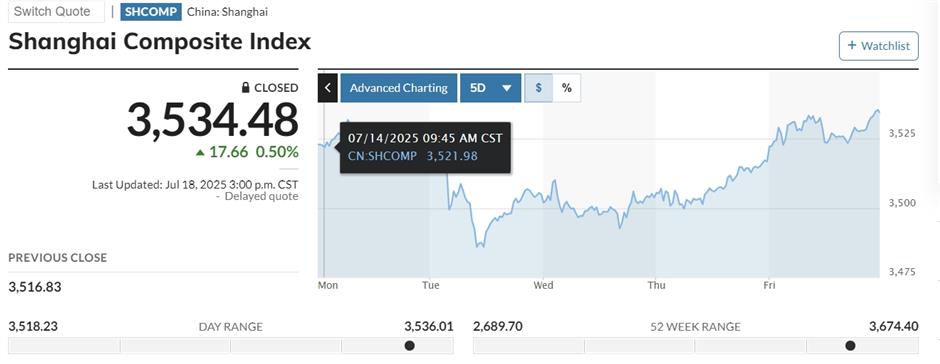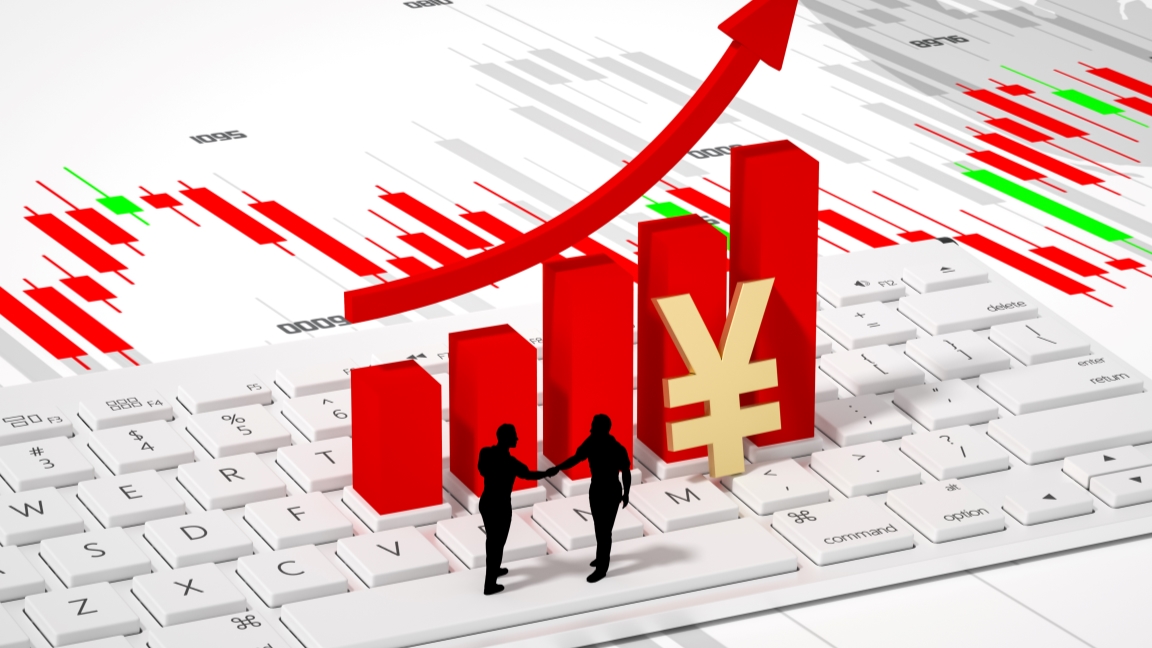
Solid figures on economic growth and consumer spending, and news that US chip exports to China will resume soon propelled the Shanghai Composite Index to a record high so far this year on Friday.
"Investors were reassured by data showing stable demand in the country," said Wang Tao, chief China economist at UBS. "The demand is partly due to the success of the trade-in consumer subsidy program and partly the continuing strength of technology innovation."
The Shanghai index rose to 3,534.48 on Friday, up 0.69 percent for the week. The Shenzhen Component Index surged 1.95 percent gain in the week, while Hong Kong's Hang Seng Index jumped 2.84 percent.
China reported gross domestic product rose 5.2 percent from a year earlier in the second quarter, gaining 5.3 percent in the first six months, above the government's annual target of 5 percent. Strong gains in exports came despite US trade restrictions.
Swiss-based UBS raised its forecast for China's 2025 growth to 4.7 percent from a previous 4 percent.

The Shanghai Composite Index rose to a yearly record of 3,534.48 on Friday, up 0.69 percent for the week.
"China should beware of a likely slowdown in exports due to the tariffs conflict, while the property market is still weak," Wang said. "They could become drags on the economic growth in the second half."
Nvidia, the world's largest semiconductor firm, will soon resume shipments of its H20 AI chips to China as part of a deal struck between the US and China, Chief Executive Jensen Huang said in Beijing while attending the 3rd China International Supply China Expo.
In a report released on Wednesday by the US-China Business Council, concern about tariffs among companies doing business in China jumped from eighth to second place, ranking only behind anxiety about the tenuous state of US-China relations.
"Around 40 percent of companies report negative effects from US policies, with many experiencing lost sales, disrupted customer relations and reputational damage due to the perception that US firms are unreliable suppliers," the report said.
Still, US companies remain committed to pursuing opportunities in China over the long term, with nearly all of them saying they cannot remain globally competitive without their China operations, the report added.
In Europe, the Stoxx 600 index slipped on Friday after the Financial Times reported that President Donald Trump is demanding a minimum tariff of between 15 percent and 20 percent in any trade deal with the EU.
In New York trading, the S&P 500 index rose 0.6 percent for the week, and the tech-heavy Nasdaq was up 1.5 percent. The Dow Jones Average slipped marginally.

